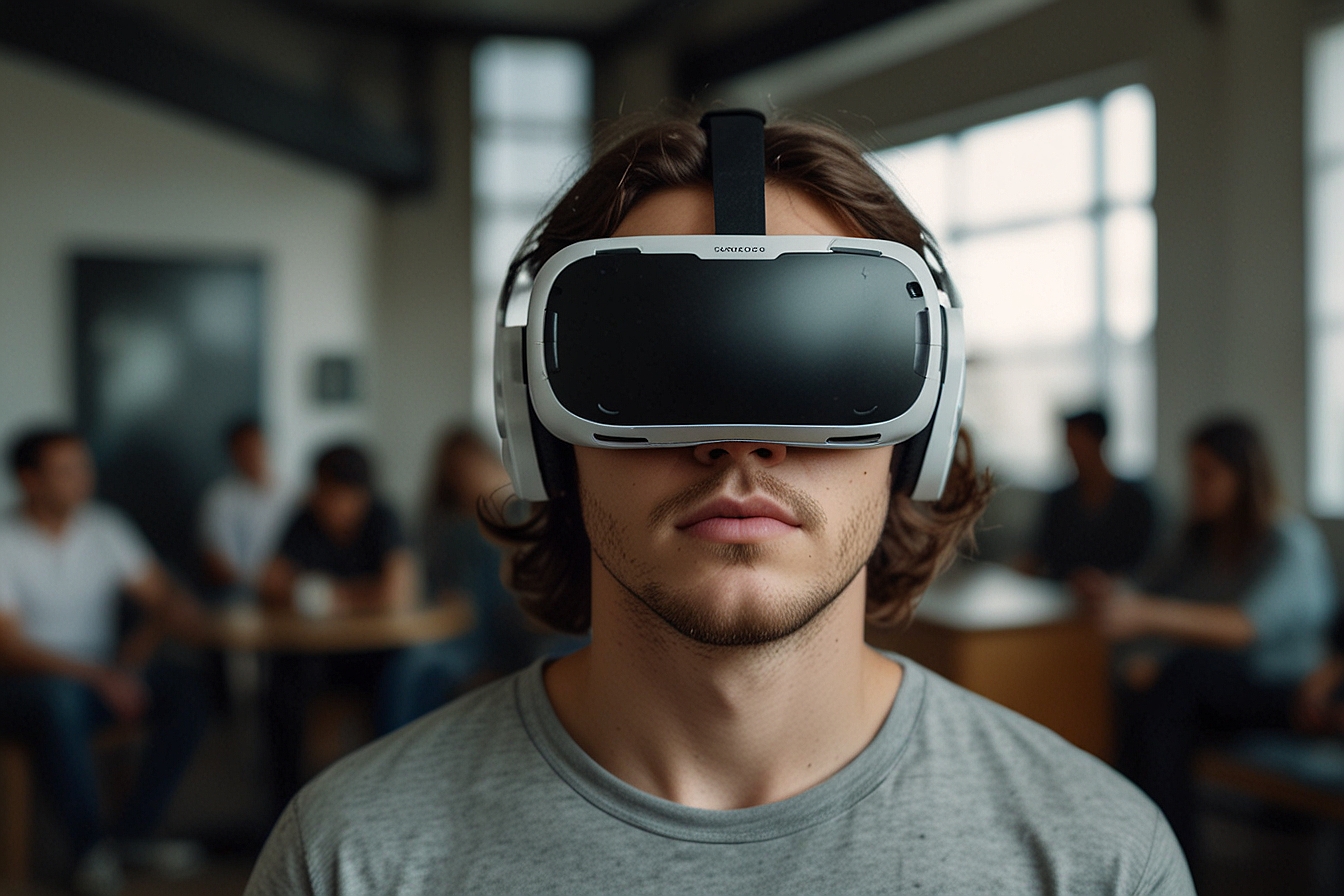Virtual reality (VR) is no longer confined to the realm of sci-fi movies or high-tech labs. With its ability to create immersive, interactive environments, VR is rapidly becoming a transformative force in everyday life. From gaming and education to healthcare and social interactions, VR is poised to reshape how we work, play, and connect. Let’s explore how this cutting-edge technology is evolving and what it means for our future.
Virtual Reality in Entertainment: Beyond Gaming
Gaming has long been VR’s flagship application, offering players fully immersive experiences. However, the future of VR in entertainment extends far beyond the gaming console.
- Movies and Storytelling: Imagine watching a film not as a passive viewer but as an active participant. VR is enabling filmmakers to create 360-degree, interactive narratives where viewers can explore the story from different perspectives.
- Live Events: VR is revolutionizing how we experience concerts, sports, and theater. With a VR headset, you can “attend” a live event from anywhere in the world, enjoying a front-row seat without leaving your home.
Impact: These applications democratize access to cultural and entertainment experiences, making them available to a global audience.
Revolutionizing Education and Training
VR has the potential to make learning more engaging and effective by providing immersive, hands-on experiences:
- Classroom Learning: Students can explore historical sites, dive into the ocean, or travel through the human body—all without leaving their desks. VR brings abstract concepts to life, making them easier to understand.
- Professional Training: From pilots to surgeons, VR is being used to simulate high-stakes environments where learners can practice skills without real-world risks. For example, medical students can perform virtual surgeries to hone their techniques before stepping into the operating room.
Impact: By offering realistic simulations, VR ensures better retention and application of knowledge, ultimately improving outcomes in education and training.
Healthcare: A New Frontier
In the healthcare sector, VR is breaking new ground in diagnosis, treatment, and therapy:
- Pain Management: VR can distract patients from pain by immersing them in calming virtual environments. It has been particularly effective in reducing pain during medical procedures and for patients with chronic conditions.
- Therapy and Rehabilitation: VR is being used in mental health therapy, particularly for conditions like PTSD and phobias. It creates controlled environments where patients can confront and manage their fears safely. Physical rehabilitation programs also benefit, as VR gamifies exercises, encouraging patients to stay engaged.
Impact: VR is making healthcare more personalized, accessible, and effective, with significant benefits for both patients and practitioners.
Socializing in Virtual Worlds
Social interactions are becoming increasingly virtual, and VR takes this trend to the next level:
- Virtual Meetups: Platforms like VRChat and Horizon Worlds allow users to create avatars and interact in immersive 3D environments. Whether it’s a casual chat or a formal meeting, VR enhances the experience by making it feel more personal and engaging.
- Shared Experiences: Families and friends separated by distance can share virtual experiences, such as exploring a new city together or watching a movie in a virtual theater.
Impact: VR bridges physical distances, fostering deeper connections and shared experiences, even in a virtual realm.
The Workplace: VR as a Productivity Tool
Remote work has surged, and VR is stepping in to make it more dynamic and collaborative:
- Virtual Offices: Companies are experimenting with VR workspaces where employees can meet, brainstorm, and collaborate as if they were in the same room.
- Skill Development: VR is being used for corporate training, helping employees develop skills like public speaking, customer service, and technical expertise through realistic simulations.
Impact: By enhancing remote collaboration and training, VR is reshaping the future of work, making it more flexible and interactive.
Retail and E-Commerce: Immersive Shopping Experiences
Retailers are leveraging VR to offer customers more immersive shopping experiences:
- Virtual Showrooms: Shoppers can browse and interact with products in a virtual store, try on clothes, or see how furniture looks in their home—all without stepping into a physical store.
- Enhanced Product Demos: VR allows customers to experience products in action, from driving a virtual car to cooking with a virtual kitchen appliance.
Impact: VR enhances convenience and customer satisfaction, bridging the gap between online and in-store shopping.
Challenges and Ethical Considerations
Despite its potential, VR comes with challenges that must be addressed for its widespread adoption:
- Cost and Accessibility: High-quality VR hardware is still expensive, limiting its accessibility for many. However, as technology advances, costs are expected to decrease.
- Privacy and Security: Collecting and storing user data in VR environments raises significant privacy concerns. Developers must prioritize transparency and user consent.
- Health Risks: Extended use of VR can lead to motion sickness, eye strain, and even psychological effects. Balancing usage and creating ergonomic designs will be crucial.
The Road Ahead
The future of VR is promising and multifaceted. As hardware becomes more affordable and software more sophisticated, VR will integrate into more aspects of daily life. Its applications in education, healthcare, work, and entertainment are just the beginning.
For VR to reach its full potential, developers, businesses, and policymakers must collaborate to address challenges and ensure the technology is ethical, accessible, and beneficial.
Conclusion: The New Reality
Virtual reality is more than a technological marvel—it’s a transformative force that will redefine how we learn, connect, work, and play. As VR becomes more mainstream, it has the potential to enrich everyday life in ways we’re just beginning to imagine. For busy professionals, curious students, and casual gamers alike, the future of VR promises a world of possibilities limited only by our creativity.
So, are you ready to step into the virtual future?





